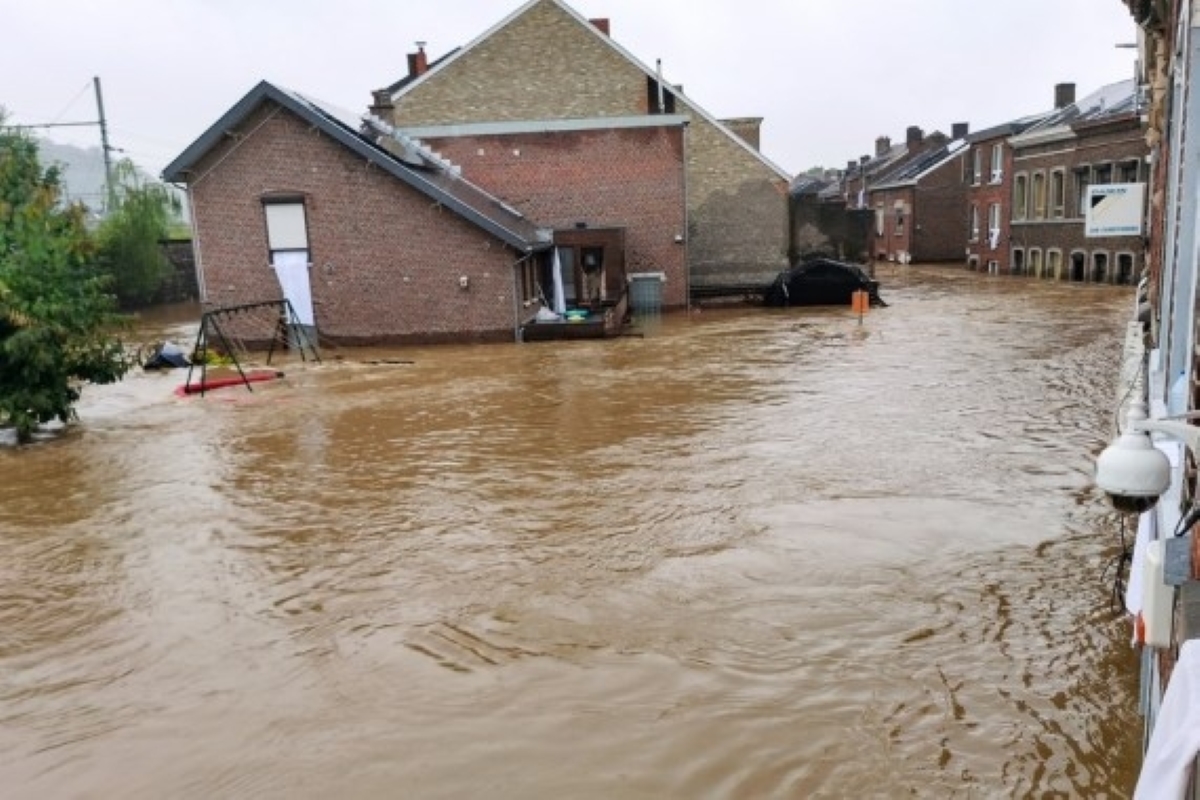For Paul and Madeline Brasseur who were at home with their two sons it was apocalypse now in the Belgian town of Pepinster.
As the water came crashing in, they went up and up trailed by the roaring whirls reaching the terrace and finally ended up perched on one with 15 others.
Advertisement
It “was like a tsunami,” recalls Paul Brasseur, 42.
In their home was a transgressor who imperiled the dwellers forcing them to ferret for safety as the water level steadily rose. They clustered in the roof and waited as around them “buildings collapsing, people of rooftops, buildings collapsing, falling into water”, adds Brasseur.
A boat arrived to rescue the children, but it began taking on water while a makeshift jetty started to collapse. Brasseur held his sons back.
“We held out, for those nine hours,” said Brasseur, who has lived in Pepinster since he was 10. “Then it was citizens, the father of my sons’ best friend who came … up over the rooftops and saved us, too.”
More than 180 people in Belgium and Germany didn’t survive. Thousands of those who did, like the Brasseurs, found their homes destroyed or badly battered.
As the floodwaters subsided, attention turned to the gargantuan task of repairing the damage wrought by the storm-induced deluges – and to the immense losses faced by those in affected areas.
In Bad Neuenahr-Ahrweiler, in western Germany, Andreas Wachtveitel spent Saturday clearing debris out of his apartment building. The 39-year-old’s home and office were submerged and badly damaged, so he doesn’t know what he’ll do next.
The sounds of the water rushing into his building’s lower floors and of nearby screaming haunt him, he said.
“We heard screams from the other side,” Wachtveitel said. “There’s a clinic and the patients were trapped.”
Franco Romanelli, who owns the Pizzeria Roma in the same town, stood in front of the restaurant that was his livelihood as workers cleared ruined furniture.
“It took such a long time to build the restaurant to get it where it is,” he said. “And now after the pandemic, this is catastrophic.”
“I made a rough calculation; we are talking about a few hundred thousand euros to rebuild the place.”
“If I look at Ahrweiler now, I could cry,” he said. “It’s my home.”
In the Netherlands, thousands of people who evacuated threatened areas on Thursday and Friday started to return home to survey the damage on Saturday.
In Brommelen, in the southern Netherlands, Wiel de Bie found his basement completely flooded. De Bie, 75, had carefully collected decades’ worth of old magazines, photos and important documents. All of them were in his basement; what hasn’t disappeared entirely is waterlogged and destroyed.
“Apart from the emotional value, which I find more important, magazines, radio bulletins from 1960 until 1997 all vanished,” he said, picking up a dripping copy of a magazine from 1924 as he pumped water out of the basement.
Down the street, the Kant family’s car still was partially submerged.
Professor Ijmert Kant, 62, said he was grateful for their safety pointing out the impending daunting task of cleaning up.
In Belgium, Brasseur celebrated his 42nd birthday on Saturday. The occasion may have turned out nothing like the day he expected, but the important thing was that his family was safe and together, he said.
“My gift today,” Brasseur said, his voice cracking, “is that my family and all the friends who we were with are still alive.”











